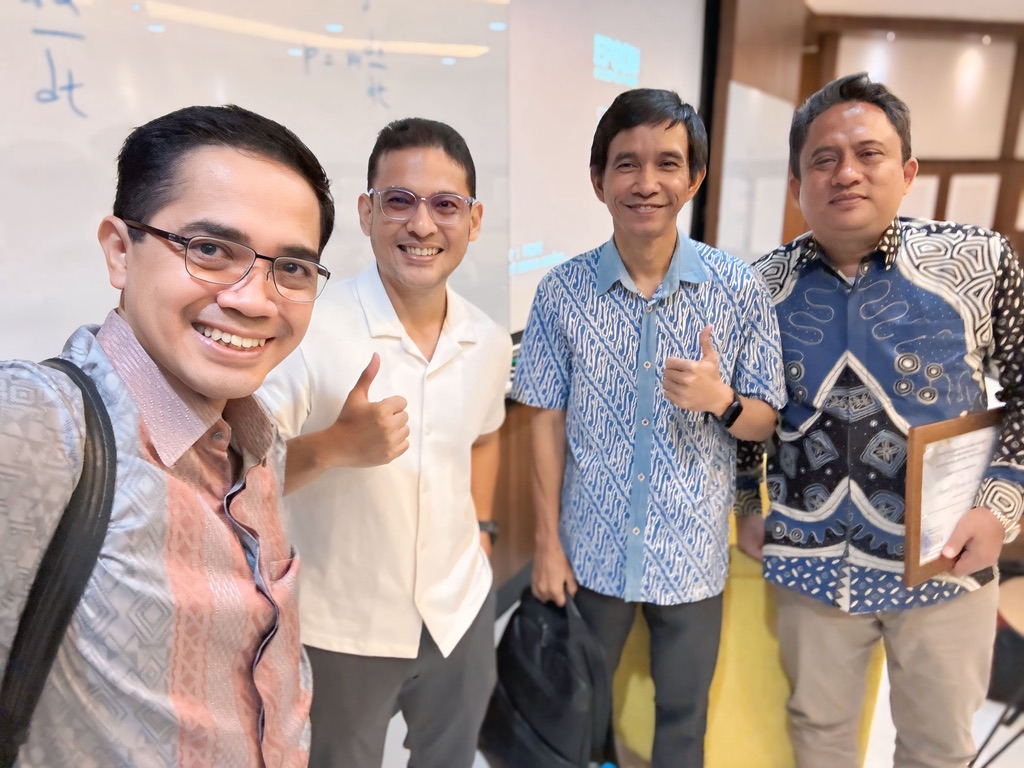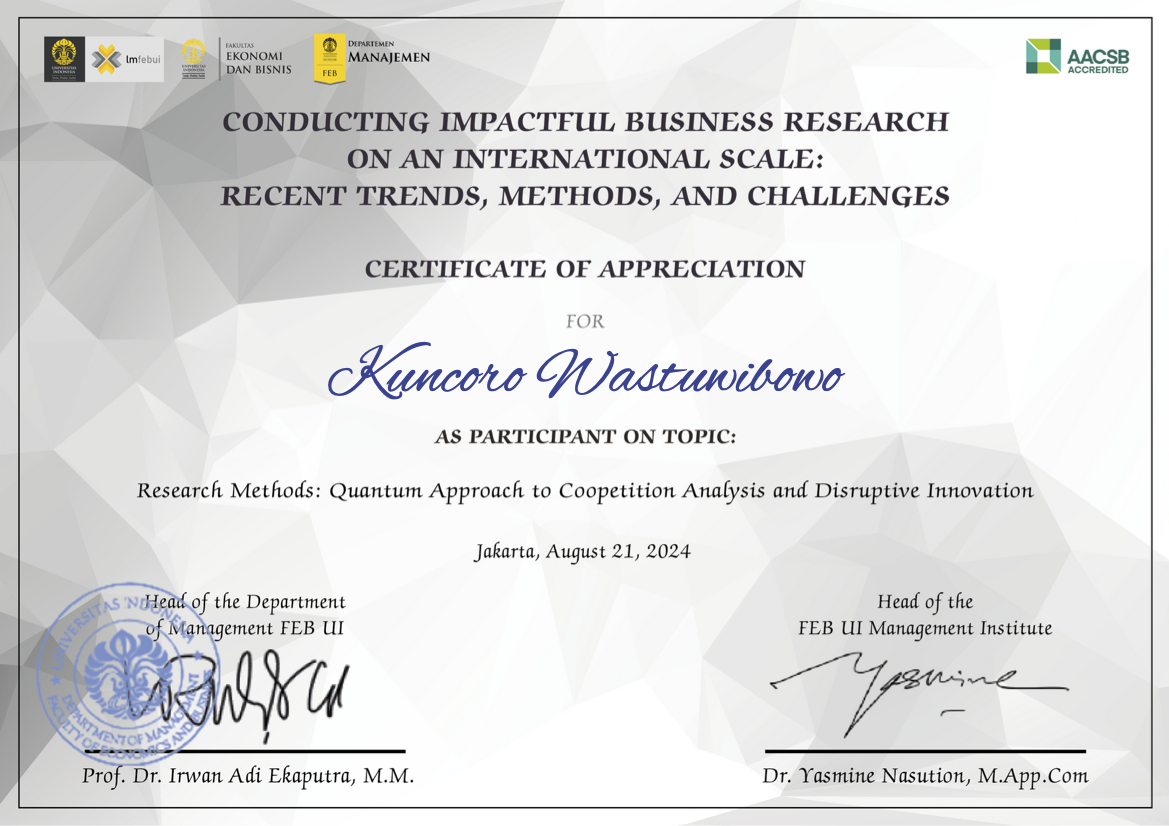After attending a meeting with Pelindo yesterday, I attended a seminar hosted by FEB UI as part of a series themed “Conducting Impactful Business Research on an International Scale: Recent Trends, Methods, and Challenges.” Today’s session featured Agung Trisetyarso and Fithra Faisal Hariadi discussing “Research Methods: Quantum Approach to Coopetition Analysis and Disruptive Innovation.” This emerging approach leverages quantum states and mathematical formalisms like Dirac notation to model complex systems in social and economic research. By addressing uncertainty, interdependence, and multidimensional data, it opens pathways to innovative analyses of decision-making, preference patterns, and network dynamics.

Quantum methods uniquely represent probabilities through superposition (coexistence of multiple states) and entanglement (interdependencies between variables). In economics, they can model ambiguous preferences and market uncertainties, while in social sciences, they tackle paradoxical decision-making scenarios where traditional logic falls short. Additionally, entanglement provides insights into deep interdependencies, such as the impact of social ties or market ecosystems. The high-dimensional nature of quantum states allows for representing multifaceted variables, such as consumer preferences, and modeling dynamic changes over time—useful for exploring cultural shifts, policy impacts, or market evolution.

I found the discussion particularly compelling regarding its application to handling volatilities and uncertainties in economic systems and complexity-based strategies. The ability to accommodate multiple states and interdependent variables makes this approach well-suited to ecosystem-based strategies, addressing ambiguous preferences and paradoxical decision-making. I plan to delve deeper into these methods to explore their potential in advancing strategic insights.


0 Comments
1 Pingback